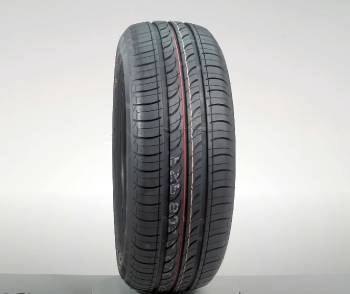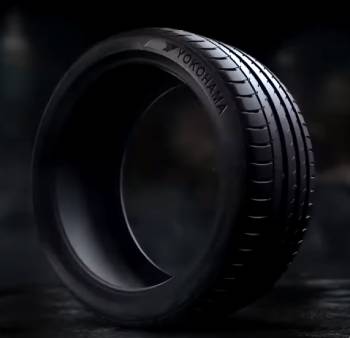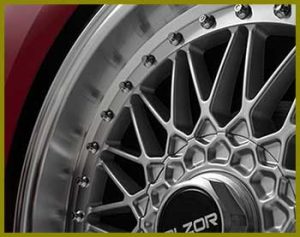Choosing the right set of tires for your vehicle isn’t as simple as it seems. It’s not just about the tire size and tread pattern; it also involves choosing the right tire brand.
Two of the industry leaders, Bridgestone and Yokohama, offer excellent options, but which one is the best for you? Let’s delve into the analysis and decide.
A Brief Comparison Table
| Feature | Bridgestone | Yokohama |
| Durability | Excellent | Good |
| Variety | Wide range of options | Moderate range of options |
| Technology | Innovative (e.g., Run-flat technology) | Highly Innovative (e.g., Orange oil technology) |
| Performance | Excellent | Excellent |
| Price | Typically higher | More affordable |
| Tread Life | Long-lasting | Varies; some models have shorter tread life |
| Fuel Efficiency | Can be lower in some models | Generally good |
| Eco-friendliness | Good | Excellent (Orange oil technology reduces petroleum use) |
Bridgestone: The Global Giant

Bridgestone, a Tokyo-based multinational company, is one of the world’s leading tire manufacturers. Renowned for their high quality and durable tires, Bridgestone caters to a wide variety of vehicles, from passenger cars to commercial vehicles, and even to Formula 1 racing cars.
Pros of Bridgestone Tires
- Exceptional Durability
Bridgestone’s tires are known for their durability. Built with advanced technology, these tires can withstand various road conditions while maintaining excellent performance.
- Variety
With Bridgestone, you’ll have an array of choices. Whether you need tires for your sedan, SUV, truck, or a performance vehicle, Bridgestone has it all.
- Innovative Technology
Bridgestone invests heavily in R&D to ensure their products are innovative and reliable. Their run-flat technology is a noteworthy example, allowing a car to travel up to 50 miles even after a puncture.
Also Read: Differences Between Michelin And General Gmax AS-05 Tires.
Cons of Bridgestone Tires
- Cost
Bridgestone’s top-tier products, particularly those with their innovative features, often come with a hefty price tag. This might be a drawback for those on a budget.
- Fuel Efficiency
Some customers have reported that certain Bridgestone tires can impact fuel efficiency negatively.
Yokohama: The Innovator

Yokohama, another Japanese brand, has carved its niche in the tire industry with its innovative and high-performance tires. Yokohama prides itself on delivering quality, durability, and performance.
Pros of Yokohama Tires
- Innovation
Yokohama is an industry pioneer in terms of innovation. They introduced the world’s first-ever orange oil-infused tire, enhancing grip and reducing petroleum use in tire production.
- Performance
Yokohama’s tires deliver impressive performance, especially when it comes to handling and grip. Their tires offer excellent control and stability.
- Affordability
Compared to Bridgestone, Yokohama tires are generally more affordable, making them a great choice for budget-conscious consumers.
Cons of Yokohama Tires
- Tread Life
While Yokohama provides excellent performance tires, some customers have noted that their tires’ tread life isn’t as long as they expected.
- Limited Options
Although Yokohama offers a variety of tire models, their product range isn’t as vast as Bridgestone’s. This may limit choice for some vehicle owners.
Bridgestone and Yokohama Tires: The Final Verdict
Choosing between Bridgestone and Yokohama boils down to your specific needs. If you prioritize durability, a wide variety, and innovative technology, Bridgestone is an excellent choice, albeit at a higher price. On the other hand, if you’re seeking performance, innovative eco-friendly solutions, and more affordability, Yokohama might be the better option.
Also Read: Differences Between Firestone Transforce AT And HT Tires.
Frequently Asked Questions (FAQs)
Both Bridgestone and Yokohama produce high-quality tires. The best choice depends on your specific needs, budget, and vehicle type.
Absolutely, Yokohama is a highly respected tire brand, well-regarded for its innovative, high-performance, and eco-friendly products.
Both Michelin and Yokohama have their unique strengths. Michelin is known for their superior ride comfort and long tread life, while Yokohama is respected for its high performance and innovative technology.
Yes, Bridgestone tires are considered top-quality. They are durable, reliable, and are produced with advanced tire technology.
Yokohama offers a range of tires, from budget-friendly to premium models. Their high-performance and eco-friendly tires are considered premium due to their advanced technology and impressive features.
Both Bridgestone and Michelin are top tire brands, each with their own strengths. Bridgestone excels in durability and variety, while Michelin is known for its ride comfort and long tread life. The choice between the two often comes down to individual needs and preferences.
Wrapping Things Up
In conclusion, the choice between Bridgestone and Yokohama, or any other tire brand for that matter, depends on your specific needs, the type of vehicle you drive, and the conditions you typically drive in.
It’s always a good idea to do your research, compare options, and consult professionals before making your final decision.



